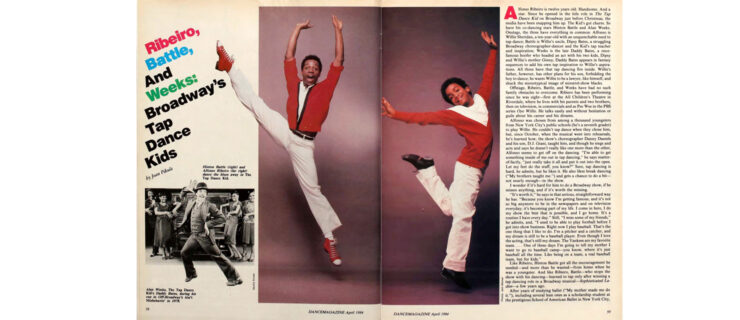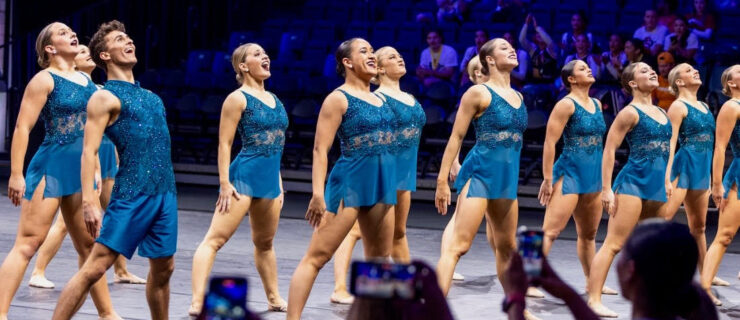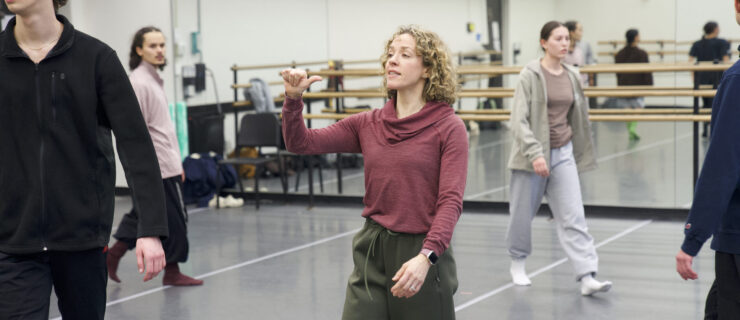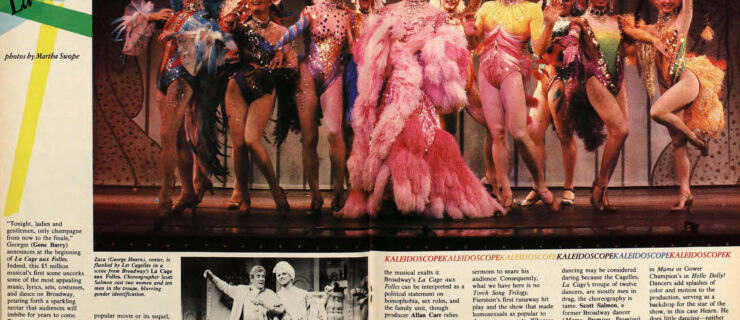Letters
Breaking the Block
I found the article exploring “choreographer’s block” (“Out of Ideas?” April) and the five different perspectives on it an insightful take on the creative process. Choreographer’s block, despite its negative connotation, can open the way to surprising discoveries. It leads to the road less traveled and forces one to dig deeply to find a solution or a new path.
When I find myself in a place of stagnation I try to look at the work from new angles. It helps me to revisit the material with new music and a different perspective about the space. I think one of the most important things an artist can do is to leave the isolation of the studio. The studio work and an artist’s life can be all consuming. One can broaden one’s perspective by engaging in the world, taking breaks, and finding sources of inspiration outside the medium of dance.
Sidra Bell
Artistic director, Sidra Bell Dance
NYC
When I get frustrated in the studio, I whip out my dog-eared copy of The Intimate Act of Choreography by Tarin Chaplin and my mentor, Lynne Blom. Their exercises always manage to push me through artistic blocks quickly.
I love to mine the unique vocabulary of movement engendered by limitations. My process often involves self-imposed obstacles, e.g., how do you dance in a leather bustier studded with cement nails without hurting yourself, or how can you move with a 24-inch drywall stilt on one leg? By transferring this approach to my pragmatic puzzle, the external imposition became inspiring instead of aggravating.
Karen Krolak
Artistic director, Monkeyhouse
Boston, MA
Kudos to Tap Coverage
Thank you not only for Paula Broussard’s piece on Jenny Lane’s recreations of Eleanor Powell routines (“Dance Matters,” May), but also for Emily Macel’s profile of Jazz Tap Ensemble’s Maya Guice (“On the Rise,” May). They are something that I can enjoy over and over again.
David Theodore Childs
Philadelphia, PA
Diaghilev Out West
Regarding the information on Ballets Russes centennial celebrations in the “Letters” page of the May issue, I would like to add that Media City Ballet of Los Angeles is continuing the legacy of the Ballets Russes. We perform such classics as Fokine’s Polovtsian Dances and Le Spectre de la Rose. The artistic director, Natasha Middleton, is the granddaughter of Elena Wortova, who was a soloist with Diaghilev’s Ballets Russes, and the daughter of Andrei Tremaine, who was a principal dancer with de Basil’s Ballet Russe de Monte Carlo. Go to www.mediacityballet.org to find out more and see videos. If you haven’t guessed it by now, I’m a dancer/choreographer with this wonderful company. I’ve been with Dance Theatre of Harlem and other L.A. companies. Next to DTH, MCB takes the cake!
Raquel Cordova
Burbank, CA
Respect for Cuba
Thank you for giving Alicia Alonso space to share her compassionate response regarding the dancers who have defected (www.dancemagazine.com/issues/
April-2009/In-Her-Own-Words).
Two thoughts: First is that few of these dancers with whom I have spoken show any disloyalty to the Cuban revolution or the Ballet Nacional de Cuba. Most cite personal reasons for leaving, including curiosity about dancing the repertories of other companies. They hold Mme. Alonso’s accomplishments and the training they received at her school, led by Fernando Alonso, in the highest regard. Although employment and medical care are assured and dancers lead a relatively privileged life, the difference in pay is a factor in the decision to leave. For some who have chosen to come to the U.S. or Canada, they may learn a harsh lesson about capitalist economics when they find themselves pounding the pavement side by side with their North American counterparts.
The second point: The real culprit is the U.S. embargo against trade with and travel to Cuba. Were it not for that, Cuban dancers could experience for themselves the richness of the exchange that Alicia and Fernando Alonso enjoyed with Ballet Theatre in the 1940s. If the embargo were lifted, I suspect many excellent North American dancers would flock to Cuba to audition and, if accepted, fill empty places in the company and in Alicia’s heart.
Toba Singer
Oakland, CA




